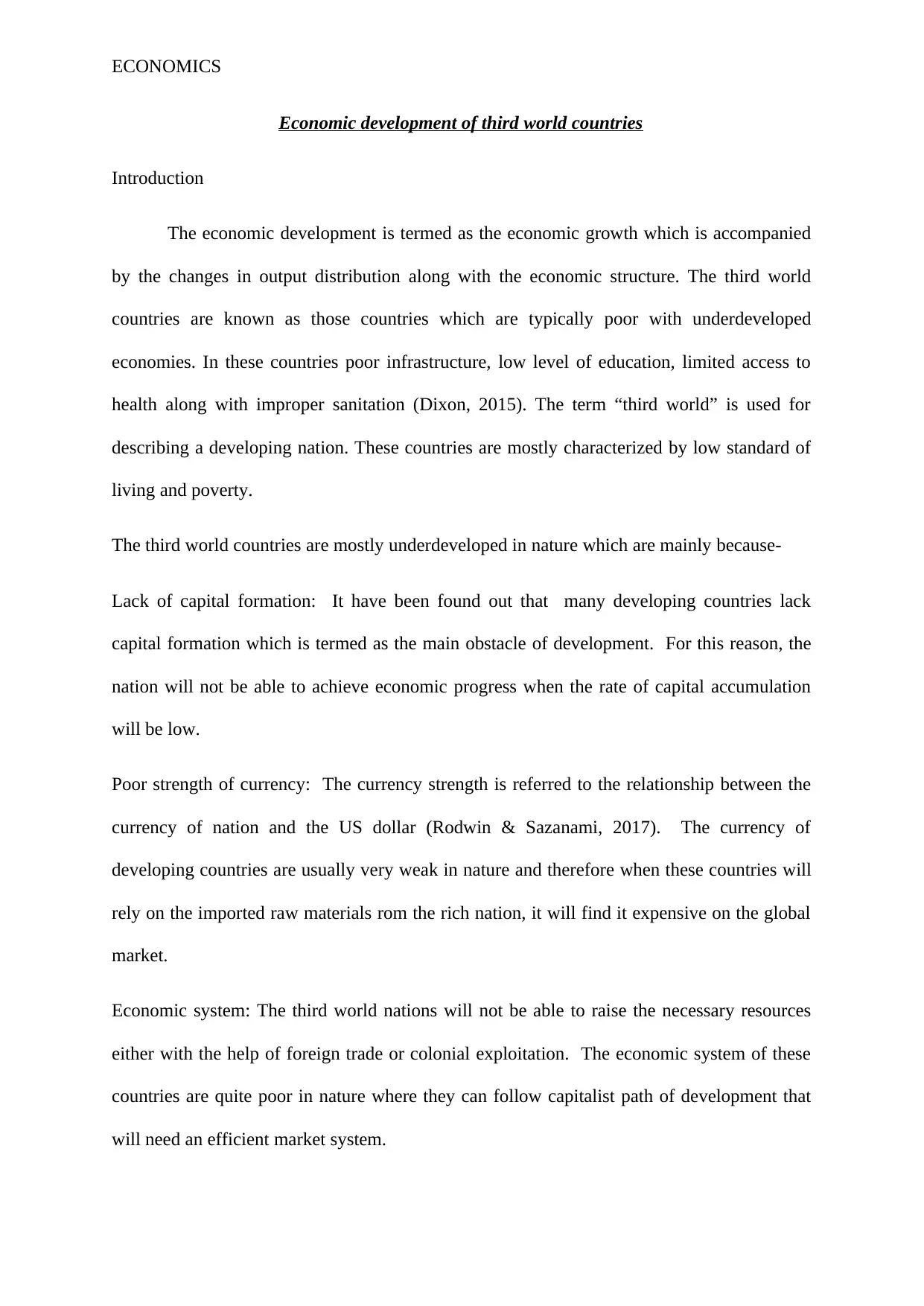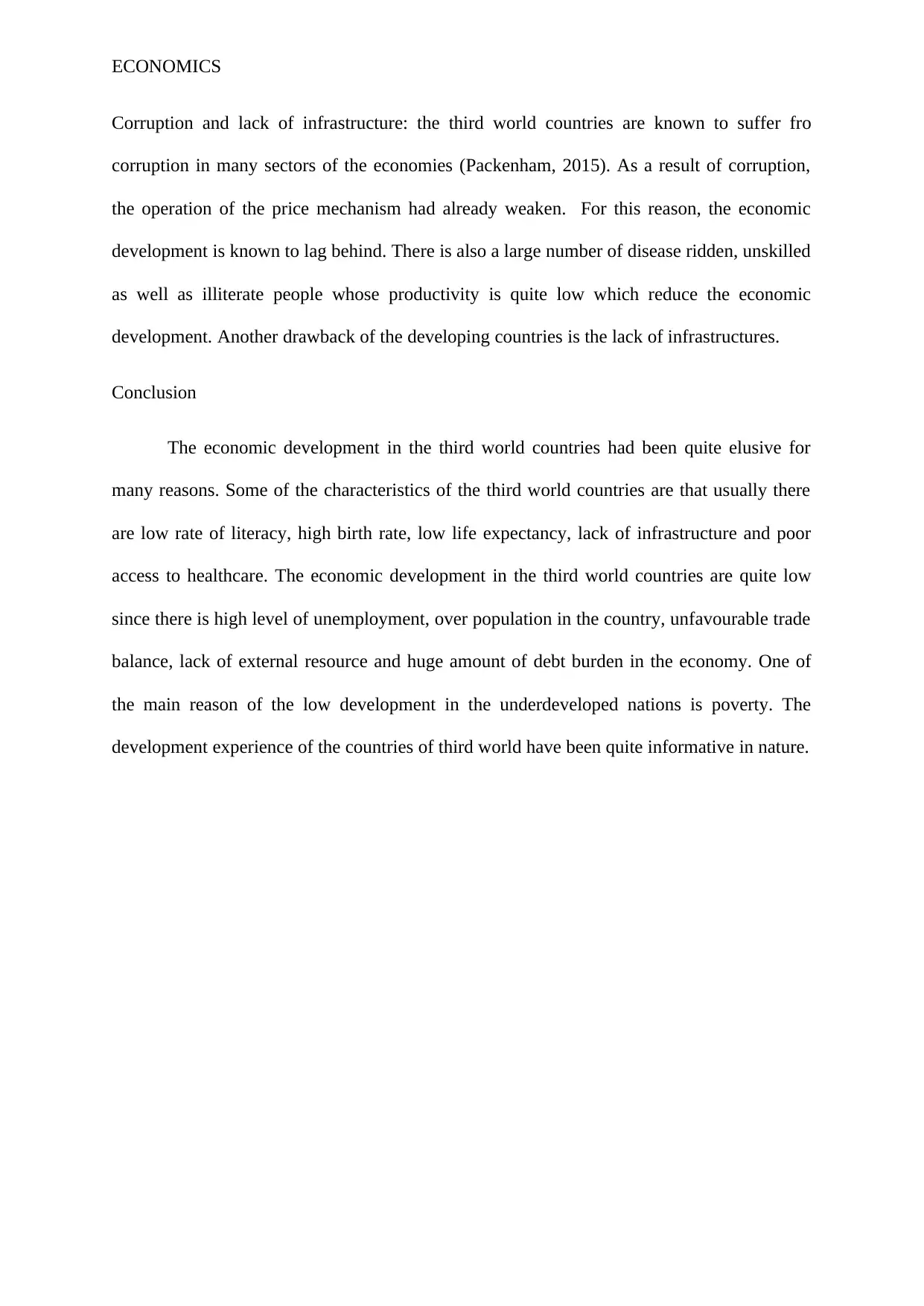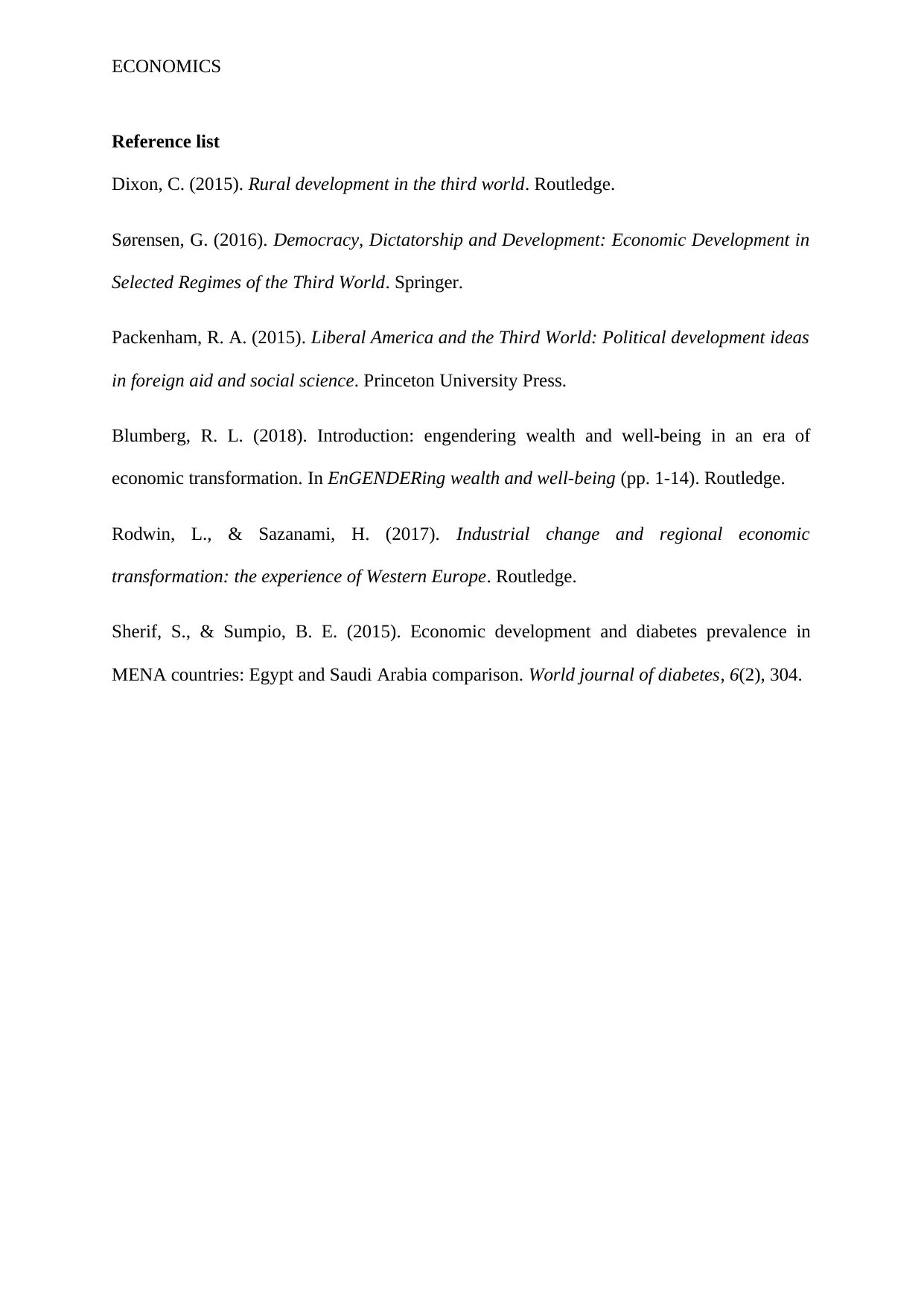Economics Report: Factors Affecting Third World Economic Development
VerifiedAdded on 2022/11/13
|4
|700
|347
Report
AI Summary
This economics report analyzes the economic development challenges faced by third world countries. It begins by defining the term 'third world' and highlighting its key characteristics, such as low standards of living, underdeveloped economies, and issues like poor infrastructure, limited access to healthcare, and low levels of education. The report then delves into the factors that impede economic progress in these nations, including lack of capital formation, weak currency strength, inefficient economic systems, corruption, and inadequate infrastructure. It emphasizes the impact of low literacy rates, high birth rates, and high unemployment rates on economic development. The report concludes by summarizing the major obstacles to economic growth and suggesting areas for further research and policy interventions. The report uses references to support its arguments.
1 out of 4











![[object Object]](/_next/static/media/star-bottom.7253800d.svg)